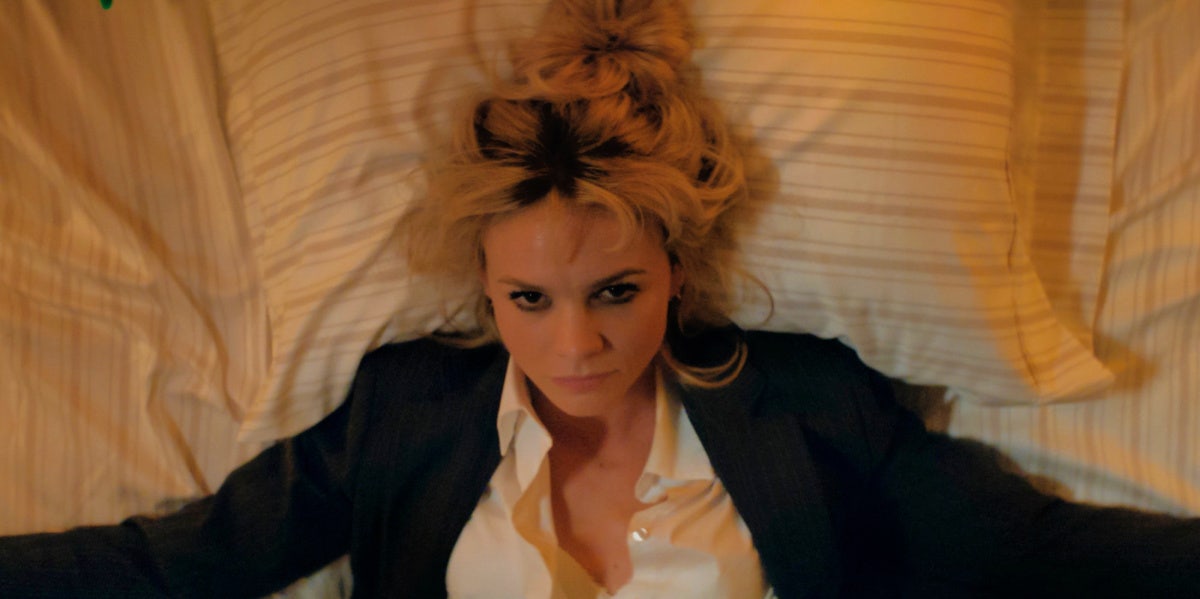'Promising Young Woman,' Sarah Everard, And The Reality Of Women Being Blamed For Their Own Deaths
The film's Academy Award nominations are more than well deserved.
 FilmNation
FilmNation Today, the film "Promising Young Women" was nominated for five Academy Awards, including two for writer-director Emerald Fennell, Best Actress for Carey Mulligan, and Best Picture.
The timing of this announcement feels particularly poignant given the tragic killing of Sarah Everard this past week.
In the days following her disappearance and death, women the world over have shared the very specific tricks of the trade for staying safe many of us grew up with.
We learned to hold our keys between our fingers to stab attackers before we were old enough to drive a car. We know to tell our friends the location of any first dates and the name of the guy we're going with in case we disappear so they’ll know who did it and where we were last. We know never to leave our drinks unattended. We know alternate routes to take in case someone follows us home.
And we know one thing above all else: if something happens to us, we, as the women involved, will be the ones they blame.
The common refrain about Everard is this: “she did everything right.”
What is meant by this is that she followed all the rules, spoken and unspoken, women are supposed to follow to not get attacked. The implication, however, is that many women do it wrong, and that is why they get attacked.
Think about that phrasing: we get attacked. We get raped. Our attackers live in passive voice and our actions are the verbs that somehow caused this. But despite her best efforts — calling her boyfriend to let him know her location, walking in a well-lit area wearing bright clothes — a man attacked Everard anyway.
And as a result, London police told women to stay indoors. Another rule inhibiting women’s freedoms. You know, so they didn’t get themselves killed.
It’s a reminder that no matter what we do, the actions of sexual abusers are not in our control.
Sarah Everard did not get killed; someone killed Sarah Everard.
And no amount of staying indoors, making phone calls, or walking in well-lit areas could stop the actions of the man who was bent on destroying her life.
It is thinking about Everard's story over the last week that made the award season accolades for 2020’s Promising Young Woman hit a bit differently.
With the kind of attention the film has garnered since its first trailer dropped in 2019, one would think the lessons of the film would spread as far as its praise. And yet, here we are. Mourning a 33-year-old woman whose actions are at the center of her story rather than those of the man who inflicted suffering and death upon her.
Spoilers for Promising Young Woman to follow.
In Promising Young Woman, Cassie (Mulligan) is a former medical student existing in a state of arrested development as she struggles with the grief of losing her best friend to suicide. Her friend, Nina, was raped by a classmate, and despite reporting the attack, no one believes her except Cassie — even though, as we learn late in the film, the crime itself had been viewed by an entire party’s worth of people, and a video captured on a cell phone was shared across the school.
As the dean (Connie Britton) tells Cassie, the concern when faced with allegations like this is for the male attacker.
“I have to give them the benefit of the doubt,” she says.
And in that helpless moment, we’re reminded of a harsh reality: Men are given the benefit of the doubt, while doubt is all women receive.
And so, Cassie has a mission. She starts a new hobby: going out to clubs, pretending to be completely fall-down wasted, and going home with a helpful “nice guy” — who invariably attempts to rape her seemingly unconscious body.
When she sits up stone-cold sober, suddenly the shine is off the apple. Each time this scenario plays out, the man in question is suddenly scared, angry, and certainly no longer interested in sex. She causes them no physical harm, just fear.
Her final victim is Al, Nina’s rapist (Chris Lowell). When confronted by the reminder of his own actions and Cassie’s cold, even-toned threats, he smothers her with a pillow, killing her.
“This is all your fault,” he screams at her struggling body. Because she was, as society would indicate women all always are, asking for it.
“It,” of course, all too often means assault, rape, and even death.
We are supposed to feel some sense of catharsis when Al is arrested for Cassie’s murder, the only justice he has ever faced, because we’re used to the contrary — rapists going uncharged, their lives unaffected entirely.
Wayne Couzens, a former police officer, has been charged with Everard’s kidnap and murder. In this case, the carceral understanding of justice may be served.
But even if it is, there is no justice for Sarah Everard, for the millions of women who face sexual violence so often as to be our normal.
Justice will come when women don’t have to carry pepper spray or walk in groups to the parking lot.
Justice will come when it’s understood that women don’t “get” raped or killed, but that men are raping and killing us.
Justice will come when the verbs — and the script — are flipped.
Courtney Enlow is a writer and editor whose work has appeared at Vanity Fair, Glamour, Pajiba, SYFY FANGRRLS, Bustle, Huffington Post, io9, and others. She is the former co-host of Trends Like These with Travis McElroy and Brent Black. She has two kids, two dogs, and requires more wine please.

